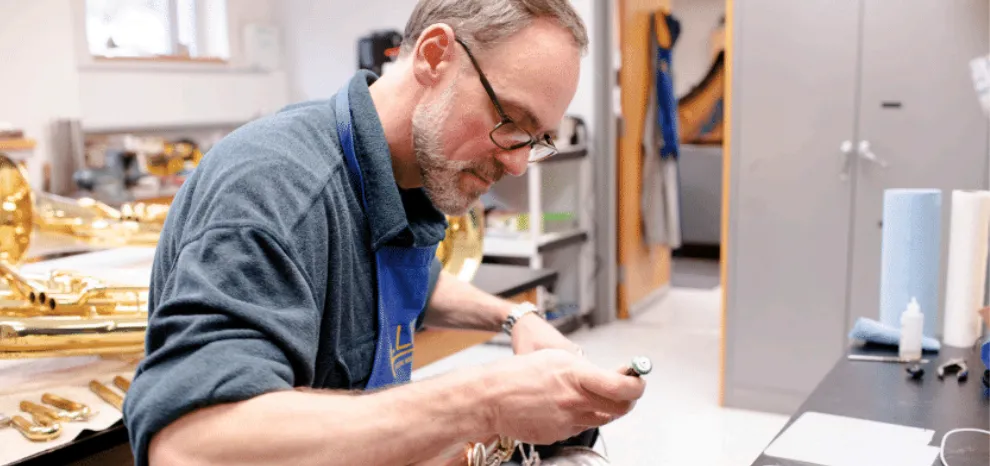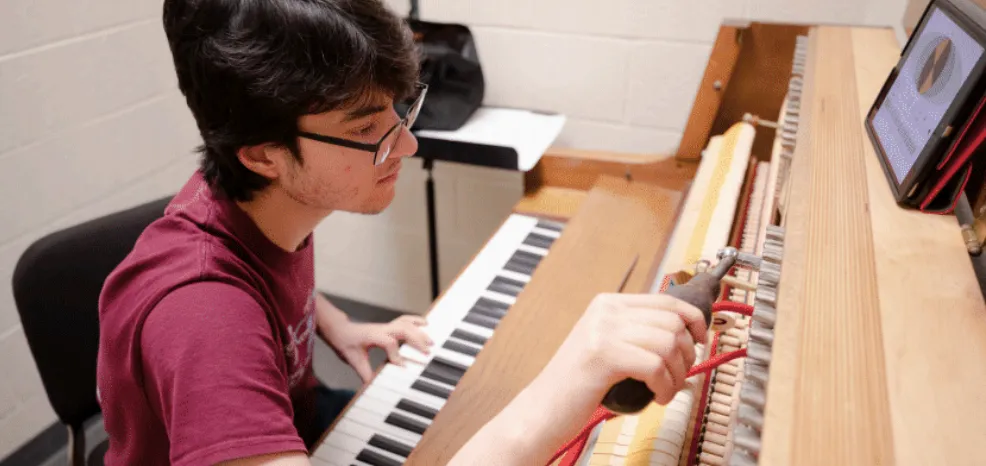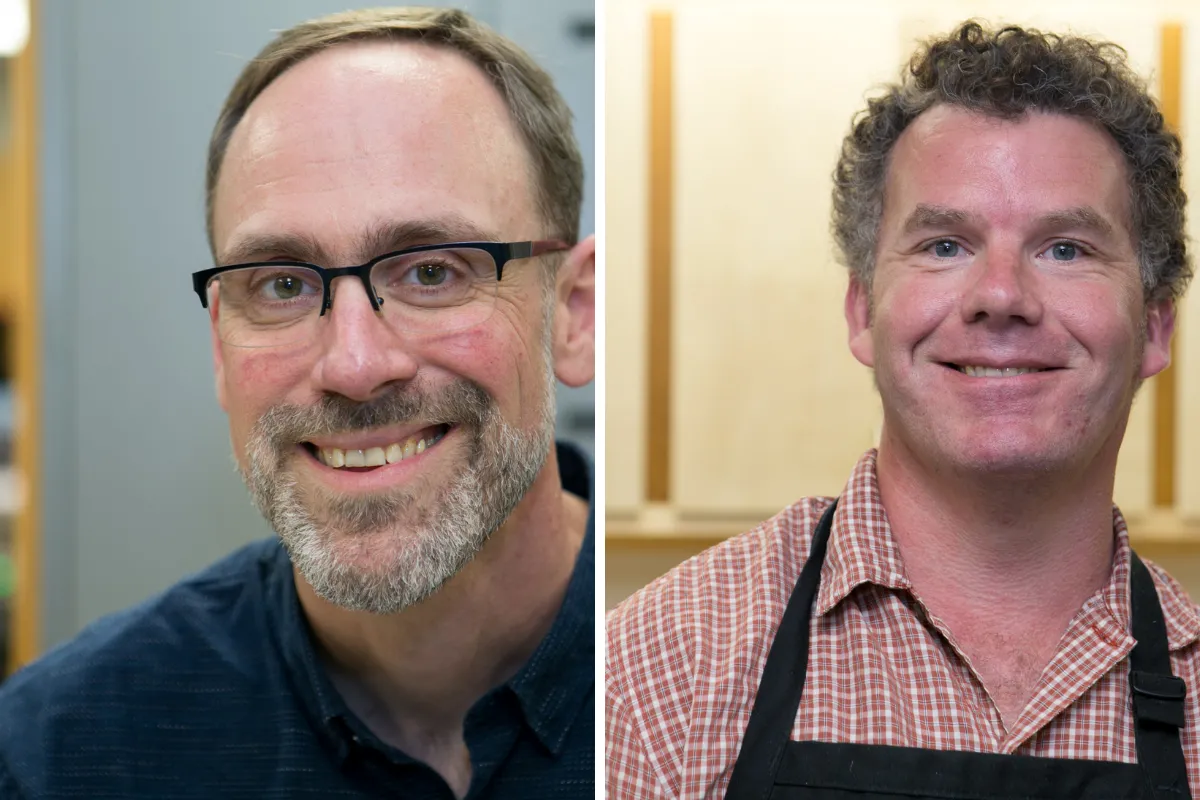The piano in retired music professor Carol McAmis’s office has a secret. The Steinway was manufactured in 1887, five years before the college was formed as the Ithaca Conservatory of Music. Was it among the first instruments owned by the college? No confirmation has been found, and the piano hasn’t revealed any clues, but today it is the oldest of the institution’s nearly 1,500 instruments.
The school needs the large inventory of instruments because half of the students pursuing a music degree are in music education, where leading a school band or orchestra requires familiarity with a range of instruments. So students supplement their studies on primary instruments with lessons on so-called “secondary instruments” from IC’s vast collection.
Two full-time music technicians are responsible for maintaining the collection, supported by eight student employees. Tom Sayers, IC’s piano technician, works exclusively on the School of Music’s 185 pianos, occasionally pitching in to help with the 20 or so other pianos on campus. His colleague, instrument repair shop manager Neil Adams, manages the repairs, maintenance, and lending process for about 1,300 brass, woodwind, and stringed instruments, as well as locker assignments for instrument storage. Theirs is a never-ending job—akin to painting the Golden Gate Bridge, which famously employs a staff of full-time painters—and the pandemic has only added to their to-do lists.


